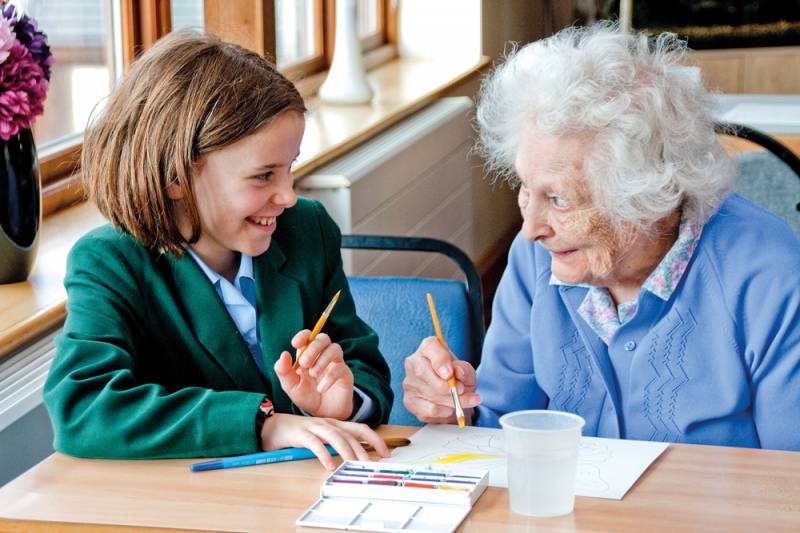When a grandparent begins to experience dementia, it affects everyone in the family — including children. For many kids, watching a loved one change can be confusing, upsetting, or even frightening. As parents or caregivers, we want to protect children from pain. But giving them age-appropriate information helps them feel safe, included, and better prepared to navigate what’s happening.
This guide can help you learn how to explain dementia to children in a way that is gentle, honest, and supportive.
How Children May React to Dementia
Every child processes change differently. Some may ask a lot of questions. Others may withdraw or seem uninterested. All of these reactions are normal.
Children may:
- Feel frustrated if they need to repeat their name or explain who they are
- Feel embarrassed when friends come over
- Become jealous of the attention the grandparent receives
- Feel sad because their grandparent is changing
- Worry or feel guilty about being upset or overwhelmed
- Feel unsure about how to act or what to say
- Feel hurt if their grandparent no longer recognizes them
- Become scared if their grandparent behaves in unexpected ways
These reactions are not signs of disrespect or lack of love. They are signs of a child trying to make sense of something very new.
As a caregiver, acknowledging their feelings — instead of trying to “fix” or dismiss them — helps children feel understood and supported.
Tips for Explaining Dementia to Children
When explaining dementia to children, keep the message simple and clear:
“Grandma’s brain is sick, just like your body can get sick. Her memory and words don’t work the way they used to, but she still feels love — even if she can’t always show it.”
Using familiar experiences helps make the concept concrete. For example:
You might say:
“Do you remember when you had a high fever and felt tired and confused? Grandma’s brain is feeling something like that a lot of the time now.”
It’s also helpful to reassure children of what isn’t happening:
- They did not cause the illness.
- They cannot “catch” dementia.
- Their grandparent still loves them.
Supporting Connection and Comfort
Even as memory changes occur, emotional connection often remains. Encourage simple, familiar activities that help preserve joy and togetherness:
- Listening to music their grandparent loves
- Looking through old photo albums
- Watering plants or spending time in the garden
- Coloring, baking, or doing simple crafts
- Sitting together and holding hands, even in silence
These shared moments can help children understand that love does not depend on memory.
When Memory Care Support Becomes Part of the Journey
If your family is considering a memory care facility for grandparents, involve children in the conversation in a gentle way. Explain that this new place is designed to help keep their grandparent safe, comfortable, and cared for — just like a hospital or doctor’s office helps people who are sick.
Learning how to explain dementia to children is not about having perfect words — it’s about creating space for honesty, questions, and love. Children are often more resilient and understanding than we expect.
With guidance, reassurance, and the chance to express how they feel, they can continue to cherish their grandparent in meaningful ways — even as the relationship changes.

